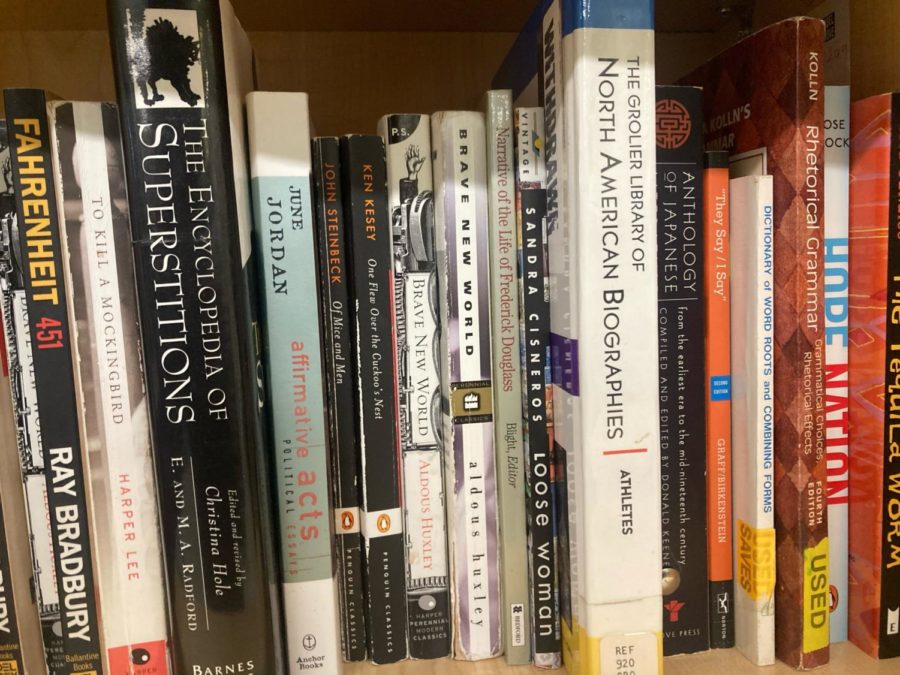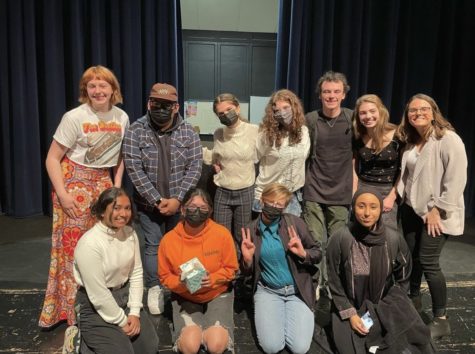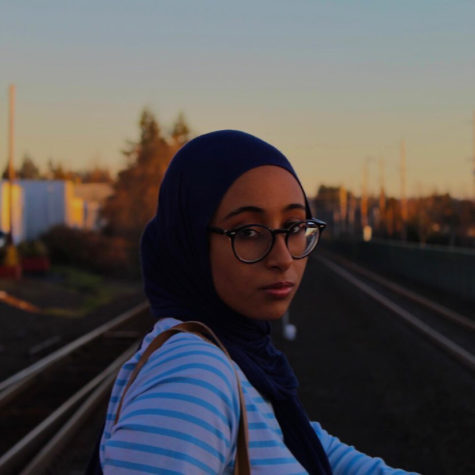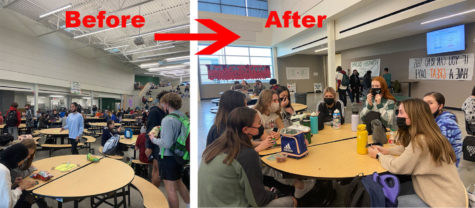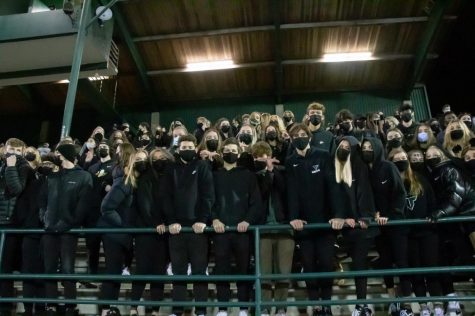Your right to the First Amendment
Books that speak of First Amendment rights line the shelves of the Tigard High Library.
April 17, 2023
In August of 2021, Chelsea Scott filed legal action against the controversial policy which banned a sign that said “be known”, implemented by the Newberg School District. The policy had directed the removal of Black Lives Matter displays and LGBTQ+ Pride flags from Newberg Schools and had urged the superintendent to draft policies to ban political displays from being put up. The Newberg School Board had also developed a policy that would ban district employees from supporting or opposing “political, quasi-political, or controversial” topics.
The American Civil Liberties Union (ACLU) of Oregon had filed a lawsuit against the school board, and four of the school board members, on the grounds of protecting free speech. The Yamhill County Circuit Court had ruled that the anti-display policies had violated Article I, Section 8 of the Oregon Constitution which states; “No law shall be passed restraining the freedom of expression of opinion, or restricting the right to speak, write, or print freely on any subject whatever; but every person shall be responsible for the abuse of the right”.
This case has received national attention, with many conservative groups now attempting to limit political thought and educational resources that can be available. Many parent groups are asking for the removal of certain books and limiting students’ freedom of the press through different lobbying movements. But through this, there’s a new question that has arisen: what does a student’s first amendment right look like?
Freedom of Speech
One of the most influential cases for all students is Tinker v. Des Moines Independent Community School District (1969), which clarified that public school students do not lose their first amendment rights when they “walk through the school gate”. This court case protects students’ right to speak out, hand out petitions and flyers, and wear expressive clothing at school, as long as it does not violate the school’s specific codes or create a disruptive environment.
The ACLU advises; “What counts as “disruptive” will vary by context, but a school disagreeing with your position or thinking your speech is controversial or in “bad taste” is not enough to qualify”.
However your first amendment rights do not protect hate speech, which is clearly banned in the Tigard Student Handbook, TTSD District policy within the EASH committee, as well as the 1st amendment jurisprudence which states; “hate speech can only be criminalized when it directly incites imminent criminal activity or consists of specific threats of violence targeted against a person or group”.
Speech that threatens serious harm can be, and should be, reported to SafeOregon, which can lead to following investigations. Although speech remains protected, it is important to consider the consequences of using it to spread hate, threats of violence or misinformation.
Book Censorship
Censorship of books, as well as local school journalism, is another politically charged issue across the country with many parent groups contacting their school boards to change curriculums, and books that are available. PEN America’s Index of School Book Bans lists from 2021-2922 there were a recorded 2,532 instances of individual books being banned, affecting 1,648 unique book titles.
Popular books which I have personally read in my time as a student in the district are being challenged across the country. Books such as; To Kill a Mockingbird by Harper Lee, The Color Purple by Alice Walker, Beloved, by Toni Morrison, 1984 by George Orwell,
Their Eyes Were Watching God by Zora Neale Hurston, and The Great Gatsby by F. Scott Fitzgerald.
Book Censorship is defined as the removal, suppression or restricted circulation of literary, artistic, or educational material – of images, ideas and information. Book banning or censorship is known when organizations, government officials or private individuals remove books from schools and libraries if they disagree with the content.
Book bans have been deemed unconstitutional, and are a direct attack on freedom of expression and speech. However a district does have the legal right to ban books when the content is too sexually explicit, uses offensive language or is unsuitable for a certain age group. The Supreme Court ruled that school boards cannot remove books simply because they dislike the ideas that they contain, which includes ideas about race, sexual orientation, religion and more.
A school board can not remove books simply because school officials or parents don’t agree with the contents of the book. The First Amendment prohibits schools from implementing rules and policies that discriminate or any one particular belief or viewpoint.
Freedom of Speech – in CyberSpace
As the internet has become more pervasive and accessible within student’s lives, the issue of censorship and consequences for actions online has become a burning issue for many school districts. The internet is constantly changing and developing, as well as the ownership of cyberspace, which would change policies regarding content.
Students need to know that schools cannot prevent you from speaking freely online. You have the same right to speak online as you do offline. However, you still need to be mindful of your online interactions with others, and make sure that your behavior doesn’t impact someone else negatively.
Schools can intervene in online student speech if the content is posted on campus, uses school resources or substantially impacts the school environment (i.e cyberbullying of other students). Online threats of violence are taken seriously, and can be reported to SafeOregon, or local law enforcement, which are met with consequences if the threat is credible.
What Students Need to Know
You have a responsibility, and a right to read, think and say what you want, as long as it adheres to the guidelines. But if something seems unfair, or unconstitutional, you have the right to protest and speak to your school board members. The law can only limit someone’s speech to an extent, so it’s important to speak out.


